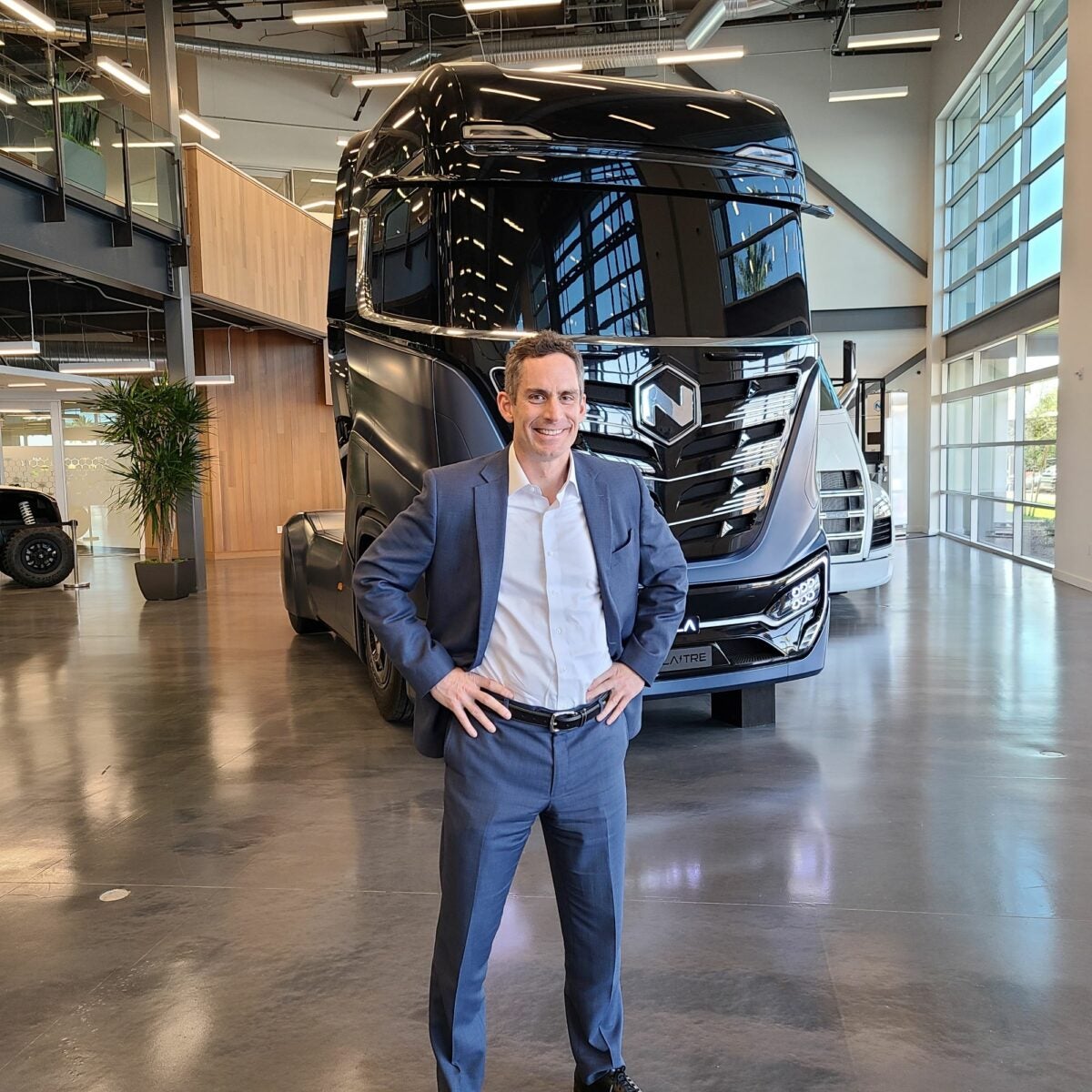Nikola Corp. (NASDAQ: NKLA) is making hydrogen more than a West Coast thing, investing $50 million in clean hydrogen for use in fuel cell trucks for customers in the Midwest.
The startup electric truck manufacturer is taking a 20% stake in Wabash Valley Resources LLC, which has a clean hydrogen project under development in West Terre Haute, Indiana.
The project plans to use solid waste byproducts such as petroleum coke combined with biomass to produce clean, sustainable hydrogen for transportation fuel and base-load electricity generation while capturing CO2 emissions for permanent underground sequestration, which enhances environmental quality.
The end game for Nikola is to have a source of hydrogen fuel to support fuel cell trucks on lanes within a 300-mile radius of freight-intensive states. Nikola expects to eventually create a hydrogen hub capable of 50 tons a day to supply its future dispensing stations within an approximate 300-mile radius, covering a significant portion of the Midwest.
“That’s definitely a good thing,” Sam Abuelsamid, principal analyst at Guidehouse Insights, told FreightWaves. “The challenge is going to be if they do have to truck the hydrogen in. That’s going to be a significant hit to the whole carbon neutrality component of this.”
Footing the bill
Nikola expects to make significant additional investment to build liquefaction, storage and transportation services.
The startup is selling up to $300 million in new shares to Tumim Stone Capital and a family office in Toronto, and plans to offer up to $1.5 billion in new shares in a follow-on stock offering and sale of convertible debt as soon as this summer.
Nikola’s goal of creating 700 hydrogen fueling stations originally anticipated making hydrogen on-site. But the prohibitive cost of electricity for electrolyzers that split hydrogen and oxygen molecules has led Nikola to explore other ways of making hydrogen fuel. Trucking fuel to stations is part of the plan, depending on the cost of electricity.
“The challenge is going to be if they do have to truck the hydrogen in. That’s going to be a significant hit to the whole carbon neutrality component of this.”
Sam Abuelsamid, principal analyst, Guidehouse Insights
The company earlier this year secured a low rate for solar-generated electricity in Arizona that will allow it to make hydrogen on-site at planned stations in the state. But that hydrogen fuel would need to be trucked to Southern California where electricity is much more expensive.
“We intend this project to produce clean, low-cost hydrogen in a critical geography for commercial transportation.” said Pablo Koziner, Nikola president, Energy and Commercial, “The Wabash solution can generate electricity as well as hydrogen transportation fuel, which should provide the flexibility to support future truck sales and hydrogen station rollout in the region.
“The expected efficiency of WVR’s clean hydrogen production should allow Nikola’s bundled truck lease, including fuel, service and maintenance, to compete favorably with diesel.”
Midwest hydrogen station rollout
As part of its investment, Nikola intends to build stations across Indiana and the broader Midwest.
“WVR is developing a multiproduct facility, where the hydrogen can be combusted in a turbine to produce clean baseload power,” said Simon Greenshields, chairman of Wabash Valley Resources. “The recent spate of power outages serves as a reminder that the market has a pressing need for a nonintermittent source of clean energy.”
The completed facility should have the capability to produce up to 336 tons per day of hydrogen, enough to generate approximately 285 megawatts of clean electricity. The project is expected to require 125 full-time employees and may support 750 construction jobs. Groundbreaking is expected in early 2022, and the work will take approximately two years to complete.
The first Nikola Tre hydrogen fuel-cell prototype builds have begun in Arizona and Ulm, Germany. Test and validation are planned into 2022, and serial production is expected to begin in 2023.

Related articles:
Nikola goes private to raise up to $300M in new money
Nikola execs play the long game and take $1-a-year post-SPAC salaries
Trevor Milton making good on stock pledge to early Nikola employees








Khloé Zac
Recovery Lost Funds From Online Scammer’s/ Cryptocurrency/ Recovery of Stolen bitcoin / Bitcoin Mining/ Increase your Credit score/ MOBILE SPY REMOTECONTROL ACCESS AUTHORIZATION. Removing Bad Records from Both Public and Private database: Email: Vitor(AT)programmer.net, WhatsApp contact: (+1) 519 / 398 / 1460
Dr. Willycurry
Let me Help You, `Dr Willy Curry Medical Field., after a terrible experience with a fake hacker, recommending J. Engressia very intellectual and good, gives a listening ear where you want to be helped, if he can’t do it he direct you to a professional like him who’s good at it, I just successfully change my grade, and my credit score fixed.
DIGITALDAWGPOUNDHACKERGROUP@GMAIL.COM
digitaldawgpoundhackergroup.blogspot.com
Text / WhatsApp:+1(732) 639–1527.